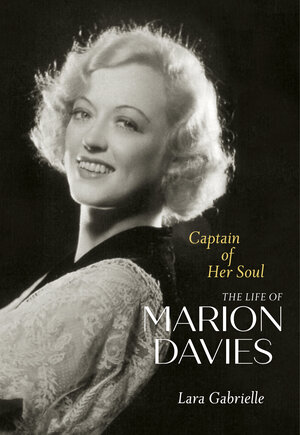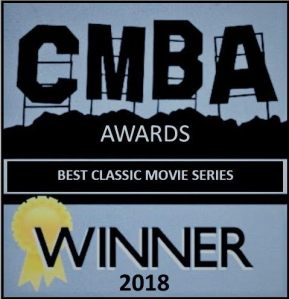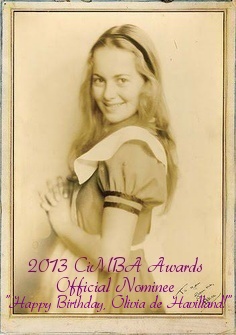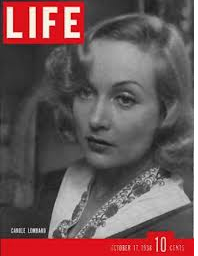
As a proud Barbara Stanwyck aficionado, I was thrilled when Noir City 13 reached its halfway point on Wednesday night with a screening of two Barbara Stanwyck dramas from the 1950s–Clash By Night (1950) and Crime of Passion (1957). As both are films that I have seen before (I’ve seen 67 Barbara Stanwyck films–yes, I’ve counted), and given that transportation home gets difficult after about 9:30, I only opted to see the former last night. Regardless, I have two films to write about today, because on Monday we were treated to a showing of one of the greatest and most charming detective stories on film, Dashiell Hammett’s The Thin Man. This is a movie I have written about several times in the past, and seen on the big screen multiple times, but viewing it at the Castro is an experience all its own.

San Francisco, in all its glory, is a town full of cinephiles. People here know their cinema, and they know how to tell the good from the bad. So when there is a packed house for a classic movie in San Francisco, you know it’s good. The theater was packed solid on Monday night.
Released right on the brink of the Production Code, The Thin Man tells the story of Nick and Nora Charles, a married detecting couple who drink their way through life and try (unsuccessfully) not to get involved in detective cases. But when a series of murders occurs and Nick knows people involved, he can’t keep himself away. Nora is just as essential to solving the murders as Nick is, and this is part of the timeless appeal of this movie.
The Thin Man is famous for its snappy dialogue and witty repartee, and for being one of the first movies to show that a husband and wife can be friends, and not just romantic partners. Nick and Nora spend the movie ribbing and joking with each other, just as good friends would do. Nora is an equal to Nick–she never once stoops below his level nor does Nick ever take the upper hand. Yet their love is never in doubt, and for its refreshing take on relationships and the position of women within marriage, The Thin Man may be considered a truly feminist movie.
On Wednesday evening, as Noir City reached its halfway point, I again ventured out to the Castro to view Clash By Night, a 1950 Barbara Stanwyck drama that again skirts the limits of the Production Code. Based on a Broadway stage play by Clifford Odets, Clash By Night tells the story of a woman who marries one man, but loves another. She is torn between love and duty, and ends up making decisions that she regrets. The two love interests are played by Paul Douglas (the man she marries) and Robert Ryan (the man she loves), and the film also stars a young Marilyn Monroe, playing Stanwyck’s brother’s girlfriend, also coming to terms with issues of love. The brilliance of the story, and also the aspect that comes into conflict with the Code, lies in the fact that there is no clear villain, and the audience struggles right along with Stanwyck in trying to determine which decision is the best. Does she leave her husband, with whom she has a child, in order to follow her heart with Robert Ryan? Or does she keep her marriage together for the sake of her husband and her child? We see her conflict, and we empathize with her.

It is interesting to note the offscreen rapport between Barbara Stanwyck, the consummate professional actress of Hollywood’s Golden Age, and Marilyn Monroe, the up-and-coming starlet who was already showing signs of psychological problems and difficulties on the set. The director of Clash By Night, the great Fritz Lang, was not up to handling Monroe’s tardiness and personal problems, but Barbara Stanwyck stood up for the young actress and protected her. She gave Marilyn acting tips, shielded her from criticism, and seemed to take her under her wing as a sort of protege. The two had come from similar difficult childhoods–both had been foster children, abandoned by their parents and raised with little to no stability. Stanwyck seemed to understand what Marilyn had been through and was continuing to go through psychologically, and their positive chemistry shines through on the screen. Their scenes together are some of the tenderest in the movie, and Marilyn Monroe later said that Barbara Stanwyck was the only actress from Hollywood’s Golden Age who ever showed her kindness.
I will be seeing the classic French thriller Les Diaboliques tomorrow evening (one of my all-time favorite films, and this will be my first time seeing it on the big screen), followed by The Honeymoon Killers on Sunday. Stay tuned for a report!



























_03.jpg)


I have Clash by Night but I have not watched it yet…your post definitely made me want to!
Oh good! I’m so glad, it’s a great movie 🙂